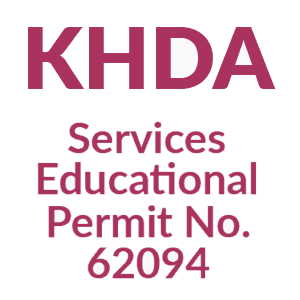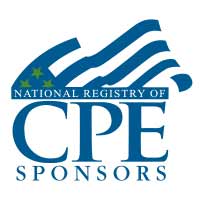Classroom Sessions:
| Date | Venue | Fees | |
|---|---|---|---|
| 06 - 10 May 2024 | London - UK | $5,950 | |
| 16 - 20 Sep 2024 | Dubai - UAE | $5,950 | |
| 23 - 27 Dec 2024 | Toronto - Canada | $6,950 |
Online Sessions:
| 16 - 20 Sep 2024 | Online | $3,950 |
INTRODUCTION
Those who deliver written legal advice or draft contract documentation are sometimes criticized for being verbose, obscure, or unhelpful. The criticism can apply whether the person is an external adviser or in-house counsel working alongside the company management team. But, if the job is done effectively, the Lawyers / Advisers can add real commercial value with the written work.
Well drafted legal documents – whether they comprise advice, correspondence, contracts or other written materials – lead to more successful outcomes: better performing contractors, more satisfied internal and external customers, reduced risks and smaller liabilities.
This GLOMACS Writing Effective Legal Documents and Commercial Contracts training course will help to develop the skills of in-house and external Lawyers / Advisers, turning them into highly effective written communicators and legal draftsmen. It will highlight why effective English legal writing is important and teach participants how to write well-structured and useful advisory and contractual documents.
This training course will include:
- How to make your legal writing effective
- How to use appropriate legal language
- Tips to follow and traps to avoid in legal writing
- How to structure your legal memorandum in the most effective way
- How to adjust your writing style to adapt to the reader audience
- How to use appropriate language in a contract
- What to look for to identify and avoid typical risks in contract clauses
- When to consider using standard templates and model form contracts
- How to draft concisely and without ambiguity
- How to structure the contract to create a logical flow
- Using checklists to identify gaps in the contract document
- How to work with the draft contracts supplied by the opposing party
Objectives
By the end of this training seminar you will be able to:
- Better understand the needs of their internal and external clients
- Create more effective legal documents in English
- Structure their documents using best writing practices
- Select appropriate English language for the legal tasks they face
- Improve the clarity and usefulness of their legal writing
- Structure a standard commercial contract
- Identify the key terms and conditions that they should include in a contract
- Use model contracts and templates as a basis for their own work
- Draft appropriate terms and conditions for a range of commercial activities
- Identify unacceptably risky terms and conditions in the proposed contracts of partners, contractors, vendors or other parties
- Propose alternative draft wording to protect their client’s commercial interests, when negotiating with others
Training Methodology
The facilitator will deploy a full range of lively and interactive training methods, including exercises, case studies, drafting sessions and group discussions.
Each topic will be underpinned by a presentation that highlights key issues to focus on. The learning experience will be supported by a reference manual containing templates and examples of best practice. Participants will draft documents, make presentations and receive personal feedback on their work.
Model legal documents will be reviewed and analysed. Alternative approaches will be considered. Real examples will be discussed.
WHO SHOULD ATTEND?
This training course is suitable to a wide range of professionals but will especially benefit:
- Corporate and Commercial In-House or External Lawyers / Advisers, especially those involved in:
- Providing legal advice to corporate functions, including to top management or the board about the meaning of terms and conditions in contracts and other documents
- Drafting instructions to or seeking advice from outside counsel or other legal experts
- Preparing, drafting and negotiating terms and conditions in supplier contracts, joint venture agreements, production licences, drilling permits and other legal commercial documents
- Commercial Contracts Professionals who assist the procurement teams in purchasing activities
- Members of the procurement team who manage supplier contracts and have to apply the terms of commercial agreements
- Any other staff member who assists or is involved in preparing legal documentation
DAY 1
Principles of Effective Legal Writing
- Introduction, objectives, and scope of the workshop
- What is effective legal writing?
- Techniques to write clearly
- Structuring your legal analysis
- Choosing appropriate legal language while avoiding ‘legalese’
- Effective editing of a legal document
- Applying the principles to letters, emails and general correspondence
- Drafting exercises
DAY 2
Best Practices in Drafting a Legal Memorandum
- Choosing an appropriate heading
- Describing the background and purpose of the memorandum
- Framing the legal issues
- Providing the short answer
- Statement of the facts
- Analysis of the issues and how the law applies
- Conclusions and recommendations in the memorandum
- Drafting Exercises
DAY 3
Principles of Contract Drafting
- Why contract drafting skills are important
- Complying with contract law essentials
- Using appropriate contract language
- Contract methodologies, including
- Bespoke written agreements
- Using general and special terms and conditions
- Using Purchase Orders with standard terms and conditions
- Framework agreements
- Deeds
- Letters of intent, Heads of terms and MoUs
- Working with model contracts and templates
- Drafting exercises
DAY 4
Preparing the Contract Draft
- Reflecting the purpose of the transaction
- Analysing and mapping out the contractual transaction process
- Structuring the contract draft
- Contents of the front and back of the contract
- Title
- Parties
- Recitals
- Dates
- Definitions
- Signatures
- Attachments, Exhibits and Schedules
- Using Boilerplate clauses, such as
- Governing law clause
- Dispute resolution process
- Contract variation mechanism
- Confidentiality obligations
- Assignment and sub-contracting
- Force Majeure
- Notices and communication clause
- Drafting exercises
DAY 5
Managing the Negotiated Draft Agreement
- Working with the other parties to the contract
- Analysing their contract clauses for hidden risks
- Negotiating the liability clauses
- Who bears the risk?
- Exclusion and limitation of liability
- Indemnity and insurance clauses
- Bonds and Guarantees
- Liquidated damages clauses and penalties
- Using clauses that impose obligations or grant powers or permissions, such as
- Inspection
- Default
- Termination
- Using the concept of “reasonableness”
- Payment and other financial terms
- Drafting exercises
- On successful completion of this training course, GLOMACS Certificate will be awarded to the delegates
- Continuing Professional Education credits (CPE) : In accordance with the standards of the National Registry of CPE Sponsor, one CPE credit is granted per 50 minutes of attendance
Endorsed Education Provider
GLOMACS is registered with the National Association of State Boards of Accountancy (NASBA) as a sponsor of continuing professional education on the National Registry of CPE Sponsors. State boards of accountancy have final authority on the acceptance of individual courses for CPE credit. Complaints regarding registered sponsors may be submitted to the National Registry of CPE Sponsors through its website: www.NASBARegistry.org
In Association With

PetroKnowledge
Our collaboration with Petroknowledge aims to provide the best training services and benefits for our valued clients

The Energy Training Centre
Our collaboration with Energy Training Centre aims to provide the best training services and benefits for our valued clients



